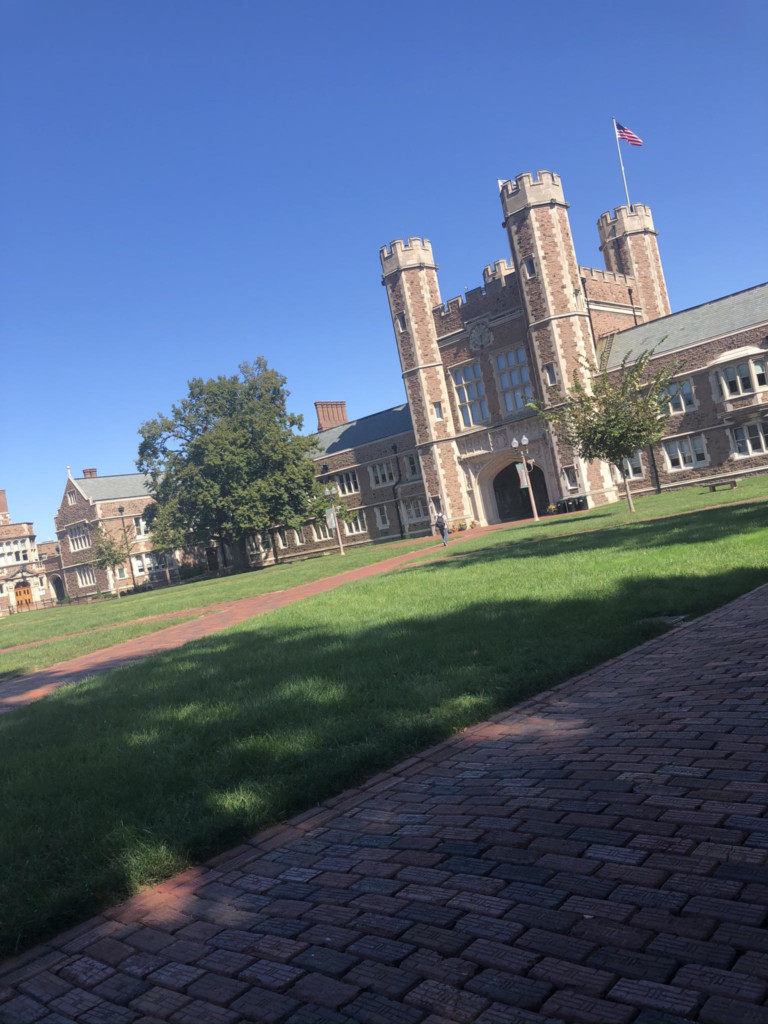
Get stories and expert advice on all things related to college and parenting.

Every morning I wake up, unlock my phone and open my university email.
Still nothing. I try to go back to sleep, but fail.
I’m anxiously awaiting my school’s announcement of their plan for the fall semester. I never used to begin a summer day with so much dread, but this has become my morning routine.
When students first had to leave campus temporarily back in March, I was much more optimistic; I was the one calming my friends down. I assured them that we would go back to school because how could we not?
Then we all got the email saying that the remainder of our spring semester would be online. I’d never had my plans wrecked so completely.
Now, as I wait for another email, I’m nervous. It’s harder to be optimistic because I know how easily a semester can be taken away. I know how it feels to have a still-full planner with events left unchecked. In a few carefully chosen words, my school could continue this odd and frustrating “on pause” version of life through the rest of the calendar year and even into 2021.
I understand that, as they weigh their options, colleges have to consider the health of students, faculty, staff and the larger community. But I want this to be over. I want to go back.
Before this new decision loomed, it was rare for me to go a full day without wondering about fall. I mostly imagined the energy on campus when everyone returned, how I’d feel seeing my friends again. It did occur to me that some things would be different, but I convinced myself there was no way school could be fully online.
That changed on fall course registration day. I had looked through requirements, picked my classes, and set up a Zoom meeting with my advisor. After we went over my schedule, my advisor asked what I would do if the fall semester was online. He said he was “just curious” — he was asking all his advisees.
I wasn’t prepared for this question. When the possibility had crossed my mind before, I'd extinguished it with denial. Now, coming from my advisor, it had actual weight.
I pictured what a full semester online at home would be like. To not go back to campus, to keep doing the academic work I would’ve been doing in between sorority socials, club basketball practices, and meals with friends. To miss more of the time which, even with three years still ahead of me as a rising sophomore, feels limited.
I knew I didn’t want that.
Determined to answer honestly, I said, “My first thought is that I’d take a leave of absence, but I can’t be sure until I actually have to decide.” My voice broke slightly. He said he’d heard that response a lot.
Later, I joined the weekly FaceTime with my future roommates. Our school offers four years of residential housing, so if it doesn’t open, we won’t have the option to still live together. I brought up my advisor’s question. I felt bad about being the one to raise the issue but too curious about my friends' feelings to keep it to myself.
They were also taken aback, but their reactions surprised me because they were the opposite of mine. They brought up things I hadn’t stopped to consider. It seems foolish that I didn’t think about what it would be like to graduate a semester later than most of my friends, spend months with nothing productive to do, and be behind when returning. While I needed to hear their points, I left the call more conflicted than ever.
I thought, Is this the only thing I get to control? Either I put my education on hold and graduate after my classmates or I have months more of online classes where I struggle to focus and am constantly reminded of the place I’d much rather be. If my school decides to go online in the fall, the only choice I have to make could never get me what I really want: to be back on campus.
That’s why I check my email first thing every morning now, hoping for the message that frees me from having to face that choice.
Recently, instead of worrying about all these things that aren't up to me, I’ve been trying instead to focus on what my return to campus will be like, whenever it happens. In the moments before sleep, I tell myself it will all be worth it. I hold onto the words of my older sister, whose second semester of senior year was cut short. She told me that college only gets better — that freshman year is a sturdy base for the many good things to come.
When this is all over, on a typical night, I’ll look around at my friends and be a little more grateful. I’ll walk into a classroom and be a little more willing to get to know my professor. I’ll search for an open table in the dining hall and not complain when every table is full. I’ll settle into a chair in the library, packed with other stressed students, and remember studying alone in my childhood bedroom and notice how much better this is. I’ll be so happy to be back. I’ll be so ready to be there.
I have to think about these things because, without them, I have nothing to hold onto.
I don’t yet know what will happen in the fall, but I know that the day I’m back on campus I will make this mean something. I will be so happy as I unpack my stuff, so eager to walk across campus to class, so willing to take more chances.
I’ll turn this into something that makes me appreciate my opportunities more. It might not be enough, but that’s what I can control.

Washington University, photo by Kate Gallop